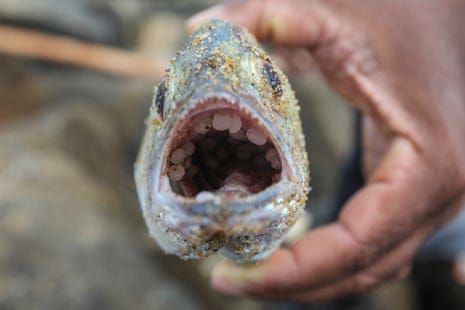
Nearly three months after the Liberian-flagged container ship MSC Elsa 3 capsized and sank 13 miles off Kerala’s coast on 25 May, a silent environmental crisis continues to unfold. While initial efforts focused on containing an oil slick from the 184-metre vessel, another, far more persistent pollutant is still wreaking havoc — nurdles.
The ship was carrying 643 containers, including 71,500 sacks of these lentil-sized plastic pellets. By July, only about 7,920 sacks had been recovered, leaving millions of nurdles adrift. Storm surges during the monsoon have washed them ashore, scattering them across beaches such as Vettukadu in Thiruvananthapuram, where piles of collected pellets now sit in jute bags awaiting removal.
Lightweight, buoyant, and notoriously difficult to recover, nurdles can circulate in ocean currents and shifting sands for years. Experts warn they pose long-term threats to marine life, coastal ecosystems, and livelihoods.
Local fishing communities have been hit hard. A government-imposed fishing ban in four districts, which has since been lifted, left boats idle, and fears of contamination have reduced demand in local markets. “Very few people now venture out to sea,” says Ajith Shanghumukham, a fisherman from the area, noting that nets often come back with more nurdles than fish.
While the state has distributed ₹1,000 (£8.50) compensation to 100,000 fishing families, this amounts to less than a week’s income for most. Many are now struggling to make ends meet as declining fish stocks and climate-driven storms compound the disaster’s impact.
The nurdle spill, described by residents as an “invisible enemy,” has transformed a one-off accident into a long-term environmental and economic crisis for Kerala’s coast.
